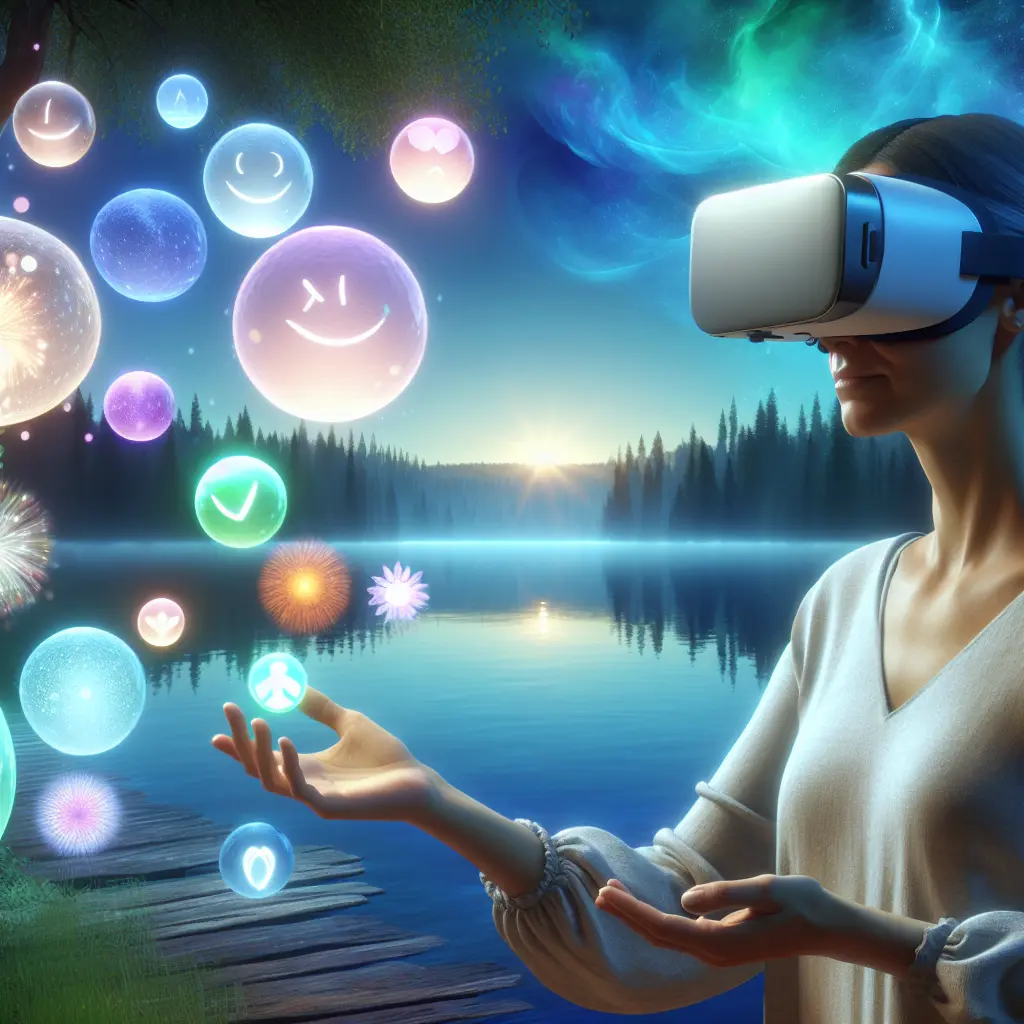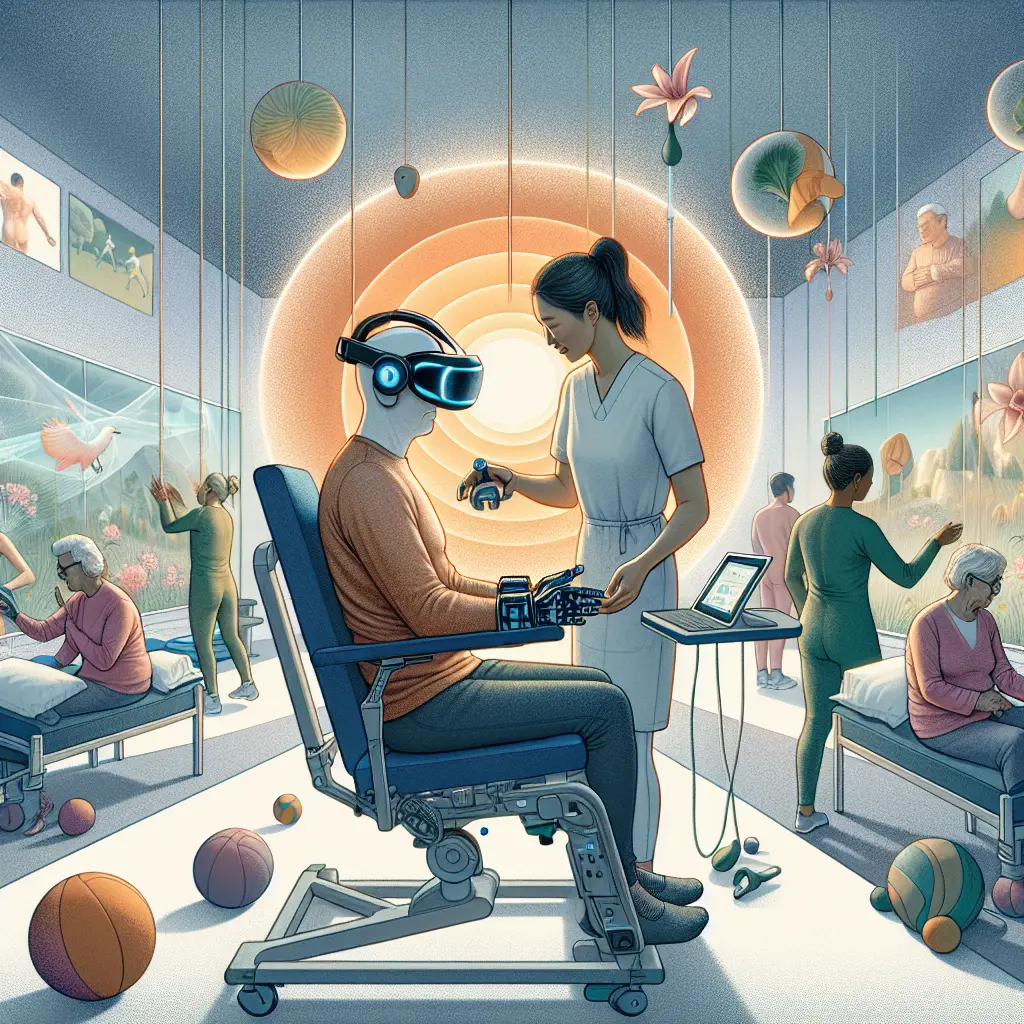In the realm of cutting-edge mental health solutions, virtual reality therapy stands at the forefront, offering transformative possibilities for emotional resilience. As the digital landscape continues to evolve, VR therapy benefits are becoming increasingly apparent, particularly in promoting emotional resilience through immersive therapy experiences. This innovative approach leverages the power of virtual reality in psychology to create virtual environments where individuals can build emotional resilience and tackle mental health challenges. From VR therapy for anxiety to virtual reality therapy programs tailored for PTSD, these digital mental health interventions are revolutionizing traditional therapeutic techniques.
The effectiveness of virtual reality therapy lies in its ability to simulate real-world scenarios, providing a safe space for emotional resilience training and stress relief. With virtual reality mental health applications, individuals can practice emotional resilience techniques in controlled settings, enhancing their ability to cope with life's stressors. As VR therapy research progresses, the potential for virtual reality therapy tools to aid in emotional well-being and resilience building becomes even more compelling.
Media and virtual reality therapy are partnering to spread awareness about these groundbreaking solutions, highlighting VR therapy applications across various mental health landscapes. Whether it's through VR emotional resilience training or specialized VR therapy sessions, the possibilities are vast and promising. As we delve deeper into the world of VR therapy for emotional resilience, it's clear that virtual reality therapy effectiveness is reshaping how we approach mental health treatment. Embark with us on this journey to explore how these immersive experiences are redefining emotional resilience and mental wellness.
In the evolving landscape of mental health care, virtual reality therapy emerges as a beacon of hope, particularly in fostering emotional resilience. With its immersive capabilities, VR therapy benefits are transforming how individuals interact with therapeutic environments, providing innovative mental health solutions that are both effective and engaging.
The integration of virtual reality in psychology has opened new avenues for emotional resilience training. Virtual reality therapy creates simulated environments where users can safely explore stressors and practice coping mechanisms without real-world consequences. This controlled setting is crucial in emotional resilience building, allowing individuals to develop and refine their emotional resilience techniques.
Harnessing VR for Emotional Resilience
For instance, recent VR therapy applications have shown significant promise in treating anxiety disorders. According to a 2023 study published in the Journal of Anxiety Disorders, participants undergoing VR therapy for anxiety reported a 30% reduction in symptoms compared to traditional therapeutic methods. This underscores the potential of VR therapy tools to facilitate emotional well-being VR interventions.
One compelling example of VR therapy effectiveness is seen in its application for PTSD treatment. A 2024 report from the National Institute of Mental Health highlighted a virtual reality therapy program designed for veterans. This program utilizes immersive therapy experiences to recreate triggering environments in a safe, controlled manner, enabling patients to confront and process traumatic memories. The results have been promising, with over 60% of participants experiencing a substantial decrease in PTSD symptoms.
Similarly, VR therapy sessions have been tailored for stress relief and emotional resilience training. Companies like Oxford VR have developed programs that simulate calming scenarios, such as serene beaches or tranquil forests, to promote relaxation and stress management. These virtual reality for stress relief applications offer a practical solution for individuals struggling with daily stressors.
Media and virtual reality therapy are increasingly collaborating to highlight these transformative mental health VR advancements. Documentaries and news segments have brought attention to the success stories emerging from VR emotional resilience initiatives, helping destigmatize mental health challenges and promote digital mental health interventions.
The Role of Media in Spreading Awareness
For example, a 2024 feature on BBC explored various VR therapy benefits by interviewing users who have experienced significant improvements in their mental health. Such coverage not only informs the public about these groundbreaking therapies but also encourages more widespread adoption of virtual reality therapy programs.
As VR therapy research progresses, the scope for innovative mental health solutions continues to expand. Researchers are exploring new ways to enhance virtual reality mental health experiences, such as incorporating biofeedback mechanisms or AI-driven personalization in VR therapy tools. These advancements aim to tailor virtual environments even more closely to individual needs, further increasing virtual reality therapy effectiveness.
Moreover, the affordability and accessibility of VR technology are expected to improve, potentially democratizing access to these powerful therapeutic tools. Initiatives aimed at reducing the cost of VR headsets and developing open-source VR therapy applications are currently underway, promising a future where more people can benefit from these digital mental health interventions.
Are you curious about how these virtual environments are crafted to maximize therapeutic outcomes? Or perhaps you're interested in trying out a VR therapy session yourself? As these technologies become more integrated into mainstream mental health care, now is an excellent time to explore how they might benefit you or someone you know.
By staying informed and engaged with these developments, you can take part in shaping the future of mental health treatment—one where emotional resilience is not just a goal but an achievable reality for everyone.






Leave a Comment